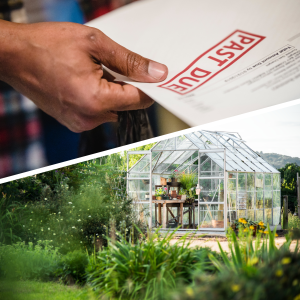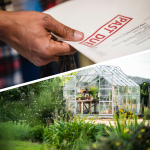
Do you need a building permit for a small greenhouse? Yes, 100% you need a building permit for a small greenhouse.
Generally, if your greenhouse will exceed 120 square feet, obtaining a permit is likely necessary to ensure safety and adherence to building codes.
However, if your greenhouse will be smaller than this threshold, permit requirements may vary depending on your state and local regulations.
Furthermore, if you plan to incorporate electricity or plumbing into your greenhouse, additional permits may be required.
At Simbagreenhouse.COM, we emphasize the importance of consulting with your local building department before embarking on any greenhouse construction project to ensure full compliance with applicable regulations.
Related: Do You Need A Permit To Build A Greenhouse In Washington State?
Do You Need A Building Permit For A Small Greenhouse? Find 10 reason why
Here, we delve into ten pivotal reasons why obtaining a building permit for your small greenhouse is not just a formality but a crucial step towards safety, compliance, and peace of mind.
-
Safety Regulations
Foremost, building permits serve as a safeguard mechanism, ensuring that your small greenhouse adheres to established safety standards. By obtaining a permit, you commit to constructing a structure that minimizes potential hazards, thereby prioritizing the safety of occupants and passersby alike.
-
Structural Integrity
Structural stability is paramount when erecting any building, and small greenhouses are no exception. Securing a building permit entails adherence to stringent structural guidelines, mitigating the risk of collapse or damage during adverse weather conditions such as heavy rain, windstorms, or snowfall.
-
Zoning Compliance
Local zoning laws dictate the permissible land use within designated areas, including regulations concerning the construction of structures like greenhouses. Obtaining a building permit ensures that your greenhouse aligns with zoning requirements, preventing potential legal ramifications and preserving neighborhood harmony.
-
Property Value Enhancement
Beyond immediate utility, a permitted greenhouse can significantly enhance the value of your property. Prospective buyers value properties with documented compliance to building codes and regulations, viewing them as investments with reduced risk and potential for appreciation.
-
Environmental Considerations
Building permits often necessitate consideration of environmental factors, including drainage and water runoff management. By adhering to these requirements, you mitigate adverse environmental impacts, fostering sustainability and minimizing disruption to the local ecosystem.
-
Aesthetic Harmony
Neighborhood aesthetics play a pivotal role in community cohesion and visual appeal. Building permits may include provisions ensuring that your greenhouse harmonizes with the surrounding architectural landscape, contributing to the overall visual cohesion and enhancing curb appeal.
-
Legal Obligations
Building without a permit not only contravenes local regulations but also exposes you to legal liabilities. Municipal authorities possess the authority to impose fines, penalties, or even pursue legal action against unpermitted structures, underscoring the importance of compliance and due diligence.
-
Insurance Coverage
Insurance policies often stipulate coverage exclusions for structures erected without proper permits. In the event of damages or liabilities arising from an unpermitted greenhouse, you risk being uninsured and solely responsible for financial repercussions, underscoring the importance of regulatory compliance.
-
Resale Potential
For homeowners contemplating future property transactions, the presence of a permitted greenhouse can significantly enhance resale potential. Prospective buyers value properties with documented compliance, viewing them as secure investments with reduced risk and potential for appreciation.
-
Peace of Mind
Ultimately, obtaining a building permit offers invaluable peace of mind throughout the construction process and beyond. Knowing that your greenhouse project is conducted in a responsible, compliant manner alleviates stress and fosters confidence in the structural integrity and legal standing of your investment.
Do You Need A Building Permit For A Small Greenhouse? FAQ
1.Do I need a building permit for a small greenhouse?
Generally, this depends on local regulations. In some areas, small structures like greenhouses may be exempt from permits, while in others, they may require one. It’s essential to check with your local building authority to determine the specific requirements in your area.
2.What factors determine if I need a permit for my small greenhouse?
The need for a permit often depends on factors such as the size of the greenhouse, its location on your property, local zoning laws, and building codes. Structures over a certain size or those attached to a permanent foundation are more likely to require a permit.
3.How can I find out if I need a building permit for my greenhouse?
Contact your local building department or planning office. They can provide information on zoning regulations, permit requirements, and any restrictions specific to your area.
4.Are there any exemptions for small greenhouses when it comes to building permits?
Some jurisdictions may offer exemptions for small structures, including greenhouses, especially if they are considered temporary or portable. However, these exemptions vary widely by location, so it’s crucial to confirm with local authorities.
5.What happens if I build a greenhouse without obtaining the necessary permits?
Constructing a greenhouse without the required permits can lead to fines, legal complications, and orders to remove or modify the structure. It’s essential to comply with local regulations to avoid potential penalties.
6.Can I apply for a building permit retroactively if I’ve already built my greenhouse?
In some cases, you may be able to apply for a retroactive permit, but this process can be more complicated and may involve additional fees or requirements. It’s always best to obtain the necessary permits before beginning construction.
7.Are there specific guidelines or codes I need to follow when building a greenhouse?
Yes, building codes and guidelines may dictate aspects such as structural integrity, materials, setbacks from property lines, and utility connections. Familiarize yourself with these regulations to ensure your greenhouse meets all requirements.
8.Do I need a permit for a temporary or seasonal greenhouse?
Temporary or seasonal greenhouses may have different permit requirements compared to permanent structures. However, the definition of “temporary” can vary, so it’s essential to clarify with local authorities.
9.What documents or information do I need to provide when applying for a building permit?
When applying for a building permit, you’ll likely need to provide detailed plans or drawings of your greenhouse, information about its location on your property, and possibly engineering specifications, depending on local requirements.
10. How long does it take to obtain a building permit for a small greenhouse?
Permit processing times vary depending on the jurisdiction and the complexity of your project. Some permits may be issued relatively quickly, while others may require more time for review and approval. It’s wise to plan ahead and apply for permits well in advance of your intended construction start date.
The Bottom Line

In conclusion, the decision to obtain a building permit for your small greenhouse extends far beyond mere regulatory compliance.
small greenhouse building permit represents a commitment to safety, structural integrity, environmental responsibility, and long-term property value.
By prioritizing adherence to local regulations and securing the necessary permits, homeowners can embark on their greenhouse projects with confidence, knowing that they are laying the foundation for a safe, compliant, and valuable addition to their property.


